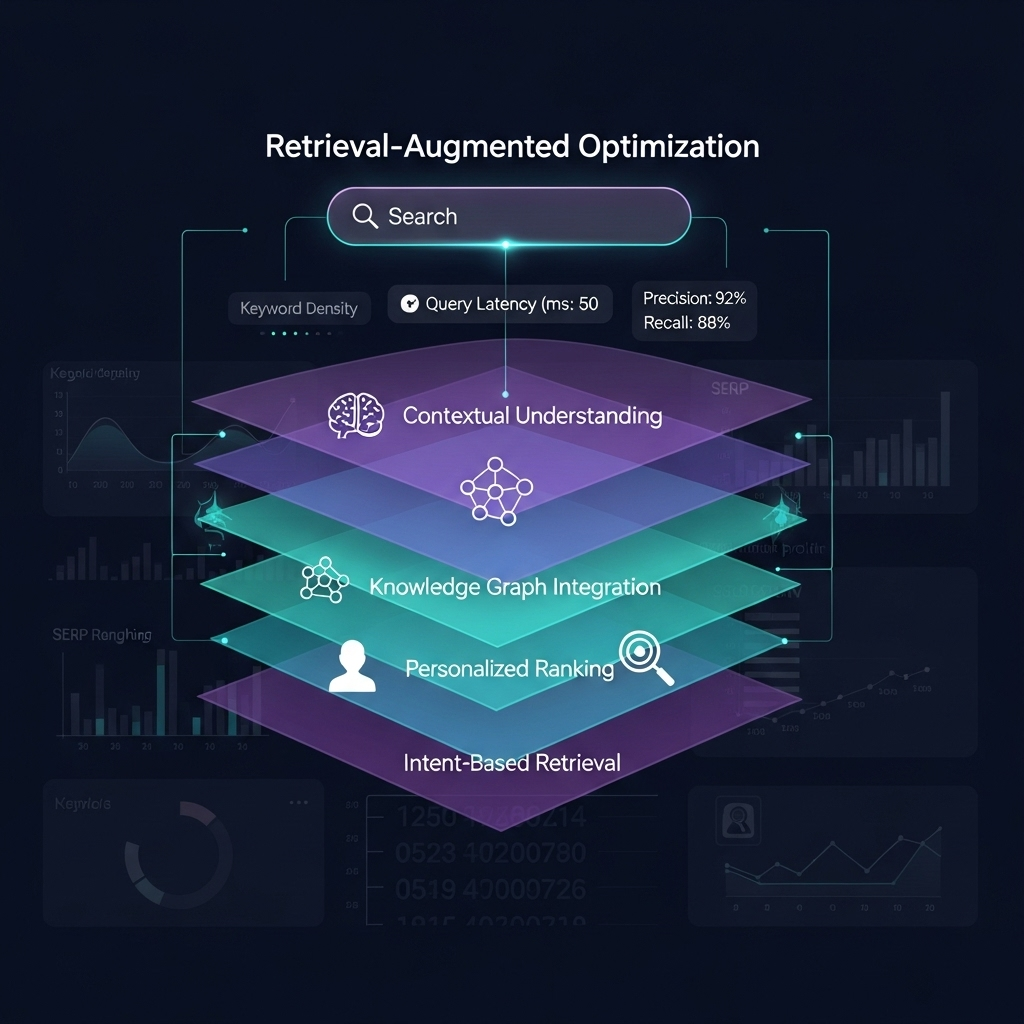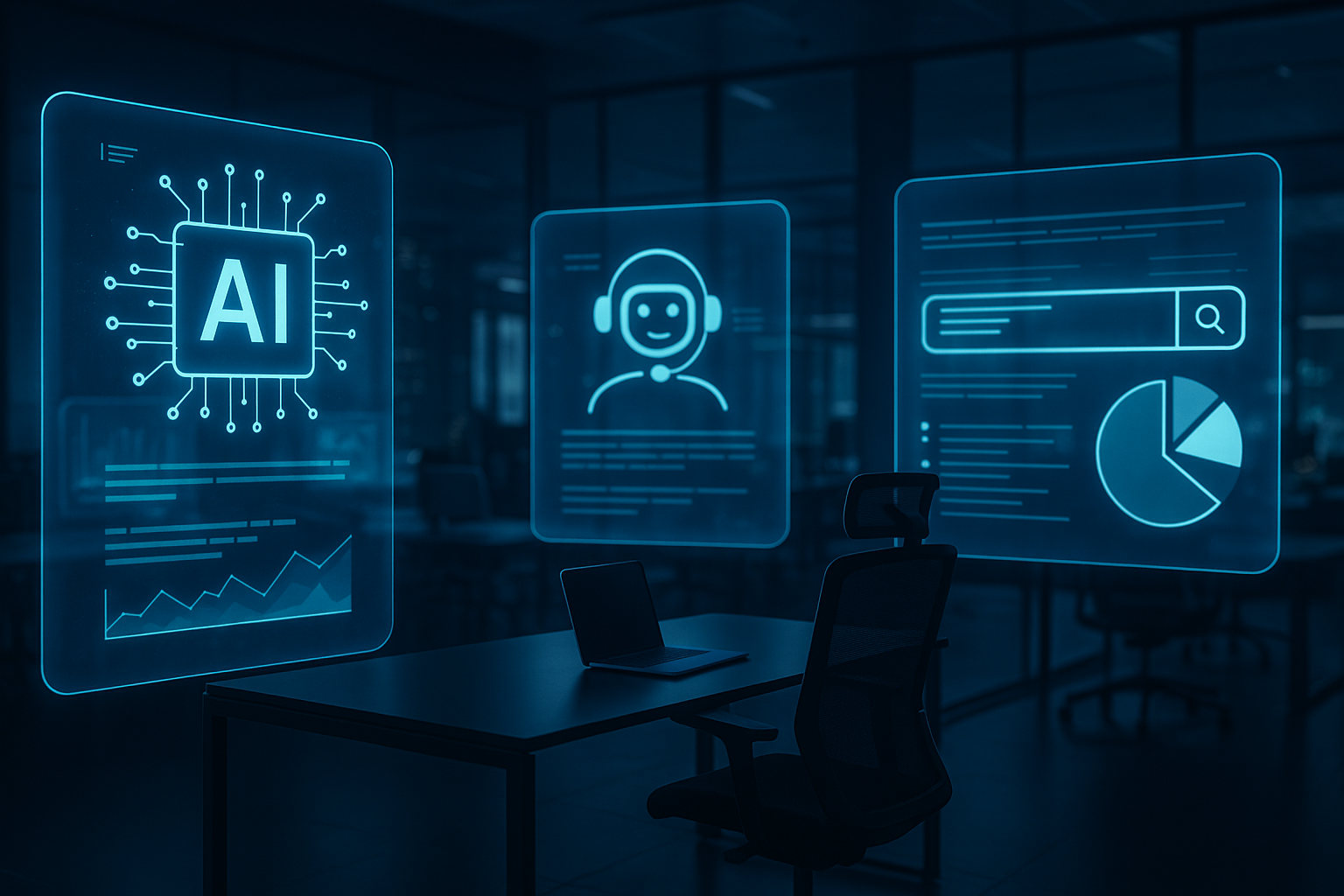What is Retrieval-Augmented Optimization (RAO)?
Retrieval-Augmented Optimization (RAO) is an innovative approach that integrates real-time data retrieval with advanced AI models to optimize search experiences beyond traditional keyword methods. Often implemented as Retrieval-Augmented Generation (RAG), it leverages external knowledge bases and dynamic information sources to provide highly relevant, personalized, and context-aware search results.
Unlike classic SEO, which centers on optimizing page content for specific keywords, RAO emphasizes connecting queries with semantically rich entities and up-to-date data. This paradigm shift empowers AI-powered search engines to understand nuanced user intent, resulting in more precise content discovery and improved user engagement.

The Decline of Traditional SEO in 2024
Organic click-through rates on traditional keyword-optimized content have been steadily decreasing as search engines rely more on AI-generated answers, personalized snippets, and conversational agents. Google and other leading providers now integrate RAO strategies that pull from multiple trusted data sources in real-time, reducing the visibility and traffic for static, keyword-stuffed pages.
“The classic SEO methods that focus solely on keywords are becoming insufficient in an era driven by AI-powered, retrieval-augmented search models.”
As search evolves, the competition for ranking using stale keyword tactics has intensified, making it difficult for websites to maintain their presence without adapting. This underlines a dramatic shift where search engine results page (SERP) real estate is increasingly dominated by dynamic, AI-curated content rather than purely optimized web pages.
Merging Legacy SEO with RAO Practices
Despite the decline, legacy SEO foundations remain relevant when combined with RAO strategies. For instance, well-structured metadata, clean site architecture, and authoritative backlinks continue to serve as signals that enhance AI’s retrieval process.
Effective digital marketing now requires a hybrid approach — optimizing content for traditional search algorithms while simultaneously structuring data and content sources for augmented retrieval. This fusion enables websites to be preferred sources of information in AI-enhanced search ecosystems.

Emphasis on Entity-Based Semantic Structuring
RAO’s success largely depends on entity recognition and semantic understanding. Instead of simply matching keywords, AI systems associate concepts, topics, and entities to build a richer context of the user’s search intent.
Marketers and SEO professionals must now focus on creating content with clear semantic relationships using schema markup, knowledge graphs, and topic clusters. This enables AI to retrieve the most accurate and relevant information by understanding the entity’s attributes, relationships, and hierarchy within the content.
The Growing Importance of Content Freshness and Credibility
Real-time data integration in RAO prioritizes fresh, credible content sources, diminishing the weight of older, less accurate pages. This creates an environment where ongoing content updates, fact-checking, and authoritative backlinks become critical to sustain visibility.
Search engines increasingly value dynamic content feed updates from trusted databases and APIs, reinforcing the need for brands to offer up-to-date information and transparent sourcing to maintain competitive rankings.
AI-Generated Summaries and Conversational Search
RAO enables AI to generate concise, relevant summaries from multiple data sources, often presenting answers directly on the SERP. Users engage more with conversational interfaces such as voice assistants and chatbots, bypassing traditional click-through pathways.
“Conversational AI is shaping search behavior by delivering instant, synthesized answers, fundamentally changing how users access information online.”
Optimizing for this new landscape means structuring content to be easily digestible by AI, supporting natural language interactions, and aligning with voice search principles.
Best Practices for Adapting SEO to RAO
- Integrate semantic markup: Use schema.org and other standard ontologies to clarify entities and relationships within your content.
- Focus on authoritative data: Establish credibility through trusted citations, backlinks, and regularly updated content.
- Optimize for conversational AI: Use clear, natural language and direct answers to common queries.
- Incorporate dynamic data sources: Leverage API feeds and real-time information to enhance freshness.
- Consolidate content into topic clusters: Build comprehensive content hubs around key entities rather than scattered keyword pages.
- Measure engagement beyond clicks: Track metrics like dwell time and user interactions that indicate content relevancy in AI-driven search results.
- Collaborate across teams: Blend SEO expertise with AI and data teams to develop integrated RAO strategies.
Conclusion and Next Steps
As RAO quietly reshapes SEO in 2024, digital marketers must evolve their tactics to thrive. Embracing AI-powered retrieval, entity semantics, content freshness, and conversational design will position brands ahead in this new era of search.
At Lumi Zone, we help businesses integrate AI-driven optimization and low-code automation to create intelligent content strategies that unlock search visibility and user engagement. Reach out to explore how your brand can lead with RAO-enhanced SEO.
